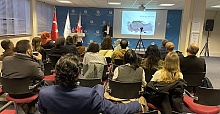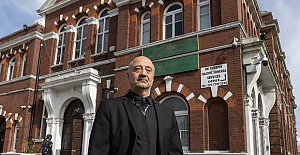Occupying a single floor of a three-storey building in a suburban Dublin office park, Western Union's offices are notably modest for the international headquarters of the world's largest money transfer firm. A modest set-up is typical of swathes of U.S. companies using Ireland to cut their TAX bill. A Reuters analysis of Irish and U.S. filings shows that more than 40 percent of the S&P 500 have registered subsidiaries in the country. That nexus, which has created over 100,000 jobs for Ireland, was laid bare when the U.S. Senate revealed that technology giant Apple had paid little or no TAX on tens of billions of dollars in profits channelled through the country.
Ireland, which has courted U.S. business for decades, rejects the Senate's claims that it is a TAX haven, but the case has damaged its reputation as it seeks to emerge from an EU-IMF bailout and its export-focused economy dips back into recession.
Company documents in Ireland and filings in the United States shows that many firms have multiple units in Ireland, where corporate income TAX is 12.5 percent - about a third of the top U.S. federal income TAX rate of 35 percent.
In many cases, several subsidiaries are registered at the offices of Dublin-based law firms.
In Western Union's case, Unit 9, Richview Office Park houses 11 of its 12 Irish subsidiaries. The company made 92 percent of its preTAX income outside the United States last year, although a fifth of its staff work in the country.
That allowed the Colorado-based company to cut its effective TAX rate to 12.2 percent - about average for a large U.S. company.
Companies, investors and some lawmakers argue it is a firm's duty to keep its TAX bill as low as possible so it can invest to grow and return money to shareholders. Western Union said it pays full TAX on all profits earned in Ireland.
"The (Irish) TAX rate is not that relevant, because nobody pays 12.5 percent," saidJim Stewart, a professor at Trinity College Dublin who specialises in corporate finance and TAXation.
"It's about the ease of incorporation, the ability of Irish corporate law and TAX law to fit in with IRS (Internal Revenue Service) requirements, and the flexibility that is shown by the Department of Finance and Revenue to any of the multinationals' needs. If they have a problem, the law will be changed."
A spokesman for Ireland's Department of Finance said it did not change laws to suit multinational companies and that its focus was on the local economy.
"In each Budget and Finance Bill the government introduces a range of measures to support key sectors in the Irish economy," the spokesman said in an emailed statement.
Apple's ability to pay TAX of just two percent of its $74 billion in overseas income over the past three years hinged on an unusual loophole in the Irish TAX code that allowed it to channel profits into Irish-incorporated subsidiaries that had no declared TAX residency anywhere in the world.
U.S. rules that allow companies incorporated abroad not to pay U.S. TAXes complemented the arrangement.
Apple, which employs about 4,000 people in Ireland, is just one of many companies that route money through the country to cut TAXes on company profits and fund investments.
PepsiCo Global Investment Holdings Ltd, which provides financing to other companies in the drinks group and is one of 14 Irish subsidiaries, made a profit of almost $6 million in 2011 and paid TAX of $215 to Curacao, giving it a rate of 0.004 percent, Irish company records show.
A spokeswoman for PepsiCo said it fully complies with the TAX laws where it operates and pays all TAXes owed.
Company records also show that an Irish holding company of medical device manufacturer Boston Scientific, one of the country's top multinational employers, paid $60 million TAX on profits of $1.4 billion in 2011, or about four percent.
Boston Scientific declined to comment.
Pharmaceutical company Bristol-Myers Squibb said in U.S. Securities and Exchange Commission (SEC) filings that it had favourable TAX rates in Ireland andPuerto Rico under grants not scheduled to expire before 2023.
Ireland's Industrial Development Agency (IDA), tasked with attracting foreign firms to the country, said it offers grants for employment, research and development, and training.
Ireland's Office of the Revenue Commissioners said it did not comment on the TAX affairs of individual companies.
Apple controversy exposes complex Irish tax web
Apple's ability to pay TAX of just two percent of its 74 billion dollar in overseas income over the past three years hinged on an unusual loophole in the Irish TAX code
14 Temmuz 2013 Pazar 03:10
reads.
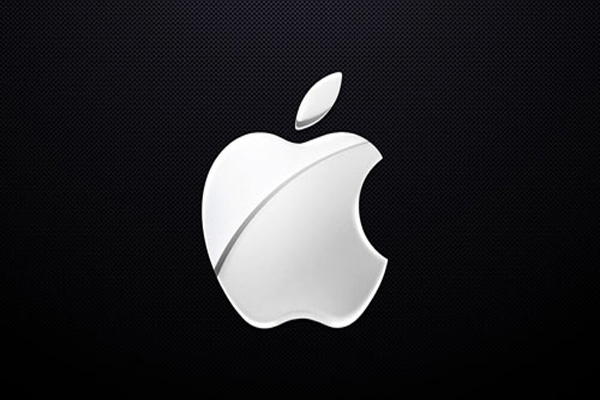



 The candidates vying to be the next London mayor
The candidates vying to be the next London mayor Enfield Council commits to anti-racism and diversity pledge
Enfield Council commits to anti-racism and diversity pledge President Erdogan promised supporters his party would learn its lessons from the defeat
President Erdogan promised supporters his party would learn its lessons from the defeat Mayor of London and London Assembly elections
Mayor of London and London Assembly elections Off duty Police sergeant Eren Emin catch suspected thief while on stag do
Off duty Police sergeant Eren Emin catch suspected thief while on stag do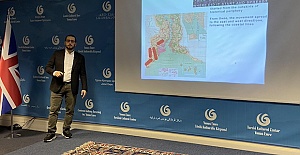 A Century of Urban Transformation, Istanbul’s Evolution
A Century of Urban Transformation, Istanbul’s Evolution Future Painters Exhibition at Tottenham Hotspur Stadium
Future Painters Exhibition at Tottenham Hotspur Stadium Models of Teaching International Journalism for Sustainable Development
Models of Teaching International Journalism for Sustainable Development English Premier League leaders Arsenal will visit title contenders
English Premier League leaders Arsenal will visit title contenders Liverpool meet Atalanta and West Ham face Bayer Leverkusen
Liverpool meet Atalanta and West Ham face Bayer Leverkusen Arsenal face Bayern Munich and Manchester City play Real Madrid
Arsenal face Bayern Munich and Manchester City play Real Madrid UK Transfer deadline day, the transfer window closes tonight
UK Transfer deadline day, the transfer window closes tonight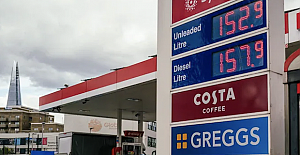 Petrol prices on UK forecourts hit 150p a litre
Petrol prices on UK forecourts hit 150p a litre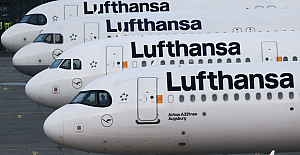 Europe's travel strikes: Flight and train disruption you can expect in April
Europe's travel strikes: Flight and train disruption you can expect in April Enfield Council website achieves digital inclusion recognition
Enfield Council website achieves digital inclusion recognition Enfield Council’s Planning Enforcement team goes from strength to strength
Enfield Council’s Planning Enforcement team goes from strength to strength



